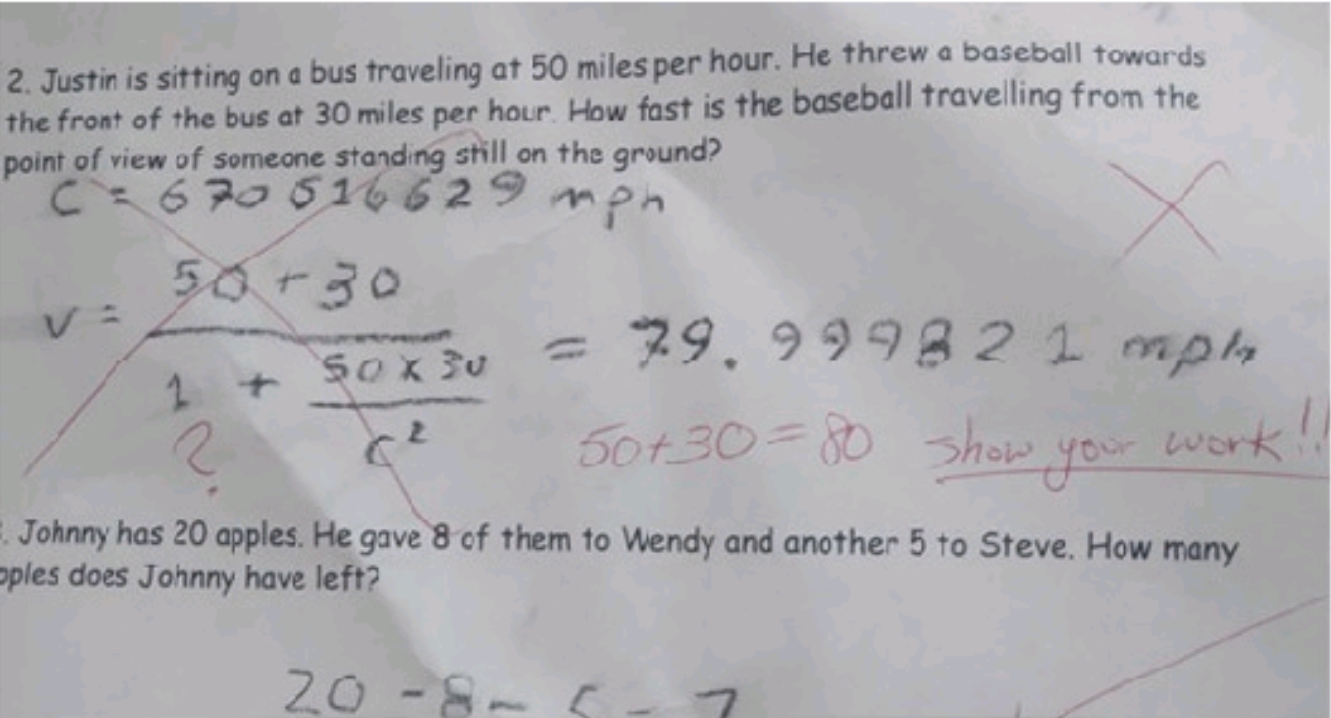this post was submitted on 14 Jul 2023
138 points (97.9% liked)
196
16809 readers
1842 users here now
Be sure to follow the rule before you head out.
Rule: You must post before you leave.
founded 2 years ago
MODERATORS
you are viewing a single comment's thread
view the rest of the comments
view the rest of the comments

Of course you can, if the formula is well-known and its applicability is obvious. To use a question a bit more at the appropriate level, if the question was "Justin was sitting on a bus travelling at 50 mph. He has been moving for 12 minutes, how far has he travelled?" you wouldn’t expect the student to write "the formula to calculate distance given speed and time is speed x time, therefore distance = 50 x 1/5 = 10 miles".
No, you’d just expect "distance = 50 x 1/5 = 10 miles". Or maybe at most "distance = speed x time = 50 x 1/5 = 10 miles", but even that is overkill if the student has demonstrated understanding via the former.
What is “obvious” is a fine point and university students still struggle with knowing what is appropriate.
For a simple distance, speed, time calculation I would expect a good student to write the units so that it’s obvious by dimensional arguments. Moreover I’d argue it takes little more effort to write eg v = d/t = …
People really underestimate the importance of clear communication and scientific clarity. A student who understands the subject deep enough to clearly communicate it is likely a top student. It’s one thing to cite that formula. It’s a whole other thing to explain its derivation or to understand that for large values of ‘c’, the formula approaches the classical limit. In these jokes, there is never a well-written response because of there were, it would diminish the shock.
Of course the whole thing is a joke, but behind the scenes, the fact that the normal person lacks an understanding of what is actually important here (the ability to communicate) leads to the mess of abilities at the university level.
It’s a perpetuation of the idea that there are these little child geniuses that outsmart their teachers. Then these little geniuses graduate high school, and realise they never actually understood the subject at anything more than a superficial level.
You’re absolutely right. I probably should have specified that in this context, that formula comes completely out of the blue and is not really appropriate, so I feel like in this case it warrants a bit of explanation.